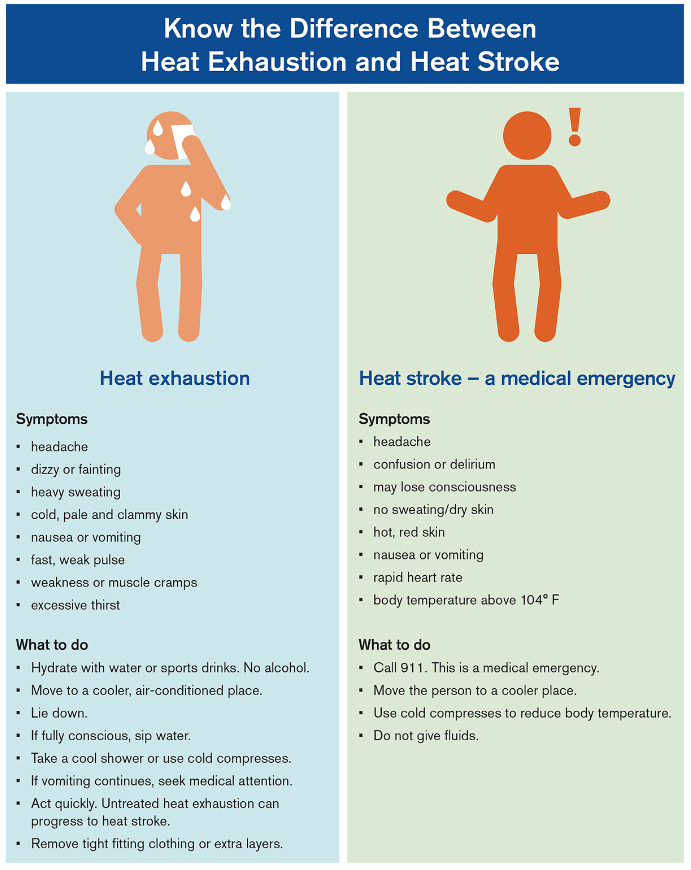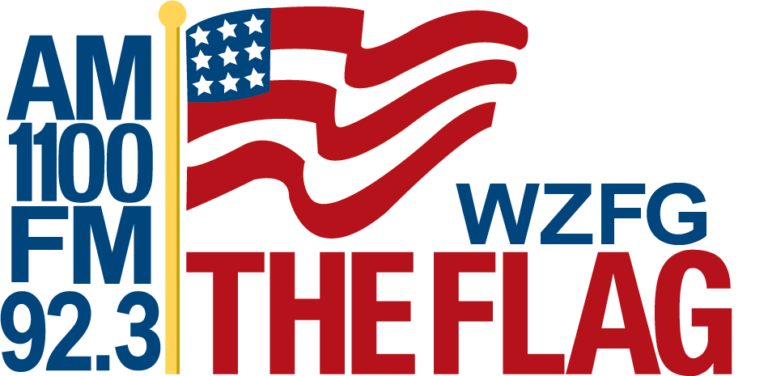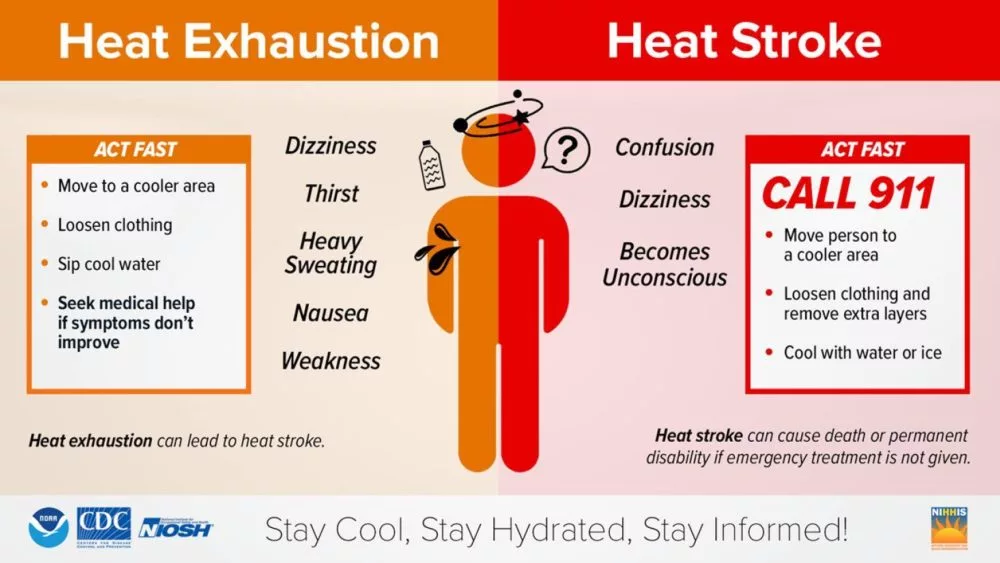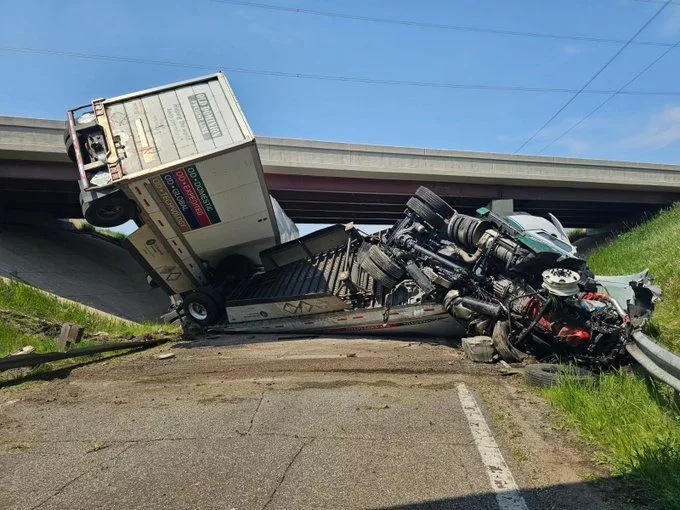Take cool (not COLD) showers or baths, and wear light, loose-fitting, light-colored clothing. You can also keep your skin wet with a damp sponge or spray bottle. Have cold food and drinks, avoid alcohol, caffeine, and hot drinks. If you’re outside, find shade. Keep your living space cool. Close windows during the day and open them at night when the temperature outside has gone down.
Drink plenty of water, non-alcoholic, and decaffeinated fluids before you feel thirsty, especially if you’re outdoors or exercising. Avoid very cold or sugary drinks. If you’re on a fluid-restrictive diet or have trouble retaining fluids, consult a doctor before increasing your fluid intake.
Limit outdoor activity to the morning and evening, and pace yourself. Stop all activity if you’re gasping for breath or your heart is pounding.
Symptoms include heavy sweating, cold, pale, clammy skin, a fast and weak pulse, nausea, and dizziness. If left untreated, heat exhaustion can lead to heat stroke. To treat heat exhaustion, you can:
- Rest in a cool place, like an air-conditioned building
- Drink cool fluids, like water or sports drinks
- Loosen clothing
- Cool yourself with a spray or sponge of cool water, or by fanning
- Lay down and raise your legs and feet slightly
“Unlike heat exhaustion, a heat stroke requires immediate medical attention. Someone experiencing heat stroke may have a headache, confusion, no sweating, rapid heart rate, nausea or vomiting and may lose consciousness.
If a heat stroke is suspected, it is vital to take the following steps:
- Call 911 immediately.
- Move the person to a cooler place.
- Use cold compresses to get their temperature down.
- Do not give them fluids.
“Left untreated, heat exhaustion and heat stroke can lead to death. If an individual is confused, passes out, is hot, but not sweating, call 911. This is a medical emergency,” says Dr. Vieder.” -Corewell Health/Beaumont

Heat Exhaustion vs heat stroke via Beaumont.org/health-wellness/blogs
Meteorologist,
Justin Storm





